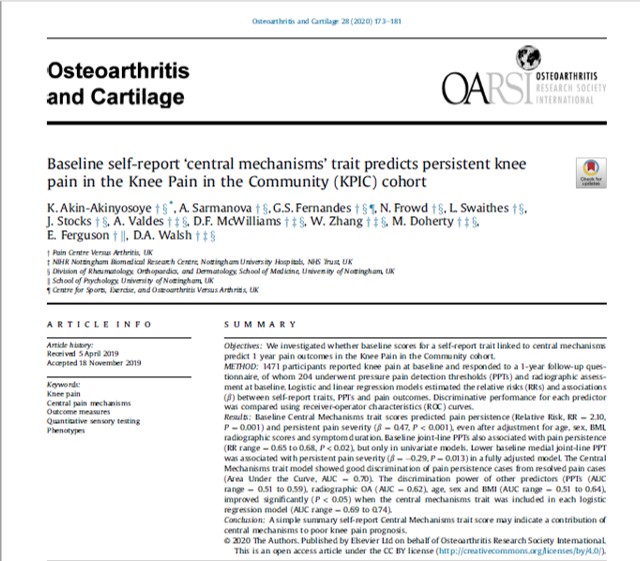This February's Osteoarthritis and Cartilage journal features our latest research from the University of Nottingham's Pain Centre Versus Arthitis.
In people over 55, long term knee pain is often due to osteoarthritis, which may be due to structural changes caused by wear and tear. Pain can also be intensified by signals to the brain via the central nervous system. Led by first author Kehinde Akin-Akinyosoye in this paper we investigated if a questionnaire of self-reported characteristics linked to the central nervous system can predict future persistent knee pain.
Utilizing the Knee Pain in the Community (KPIC) cohort, we identified 8 individual characteristics: anxiety; catastrophizing (thinking things are worse than they actually are); cognitive impact; depression; fatigue, neuropathic-like pain (symptoms such as burning pain, tingling or prickling); pain distribution and sleep, which all contribute to pain from the central nervous system. Together these characteristics could be used as a screening tool to predict knee pain persistence and severity.
The paper 'Baseline self-report ‘central mechanisms’ trait predicts persistent knee pain in the Knee Pain in the Community (KPIC) cohort' is Open Access and free to read in Osteoarthritis and Cartilage.

